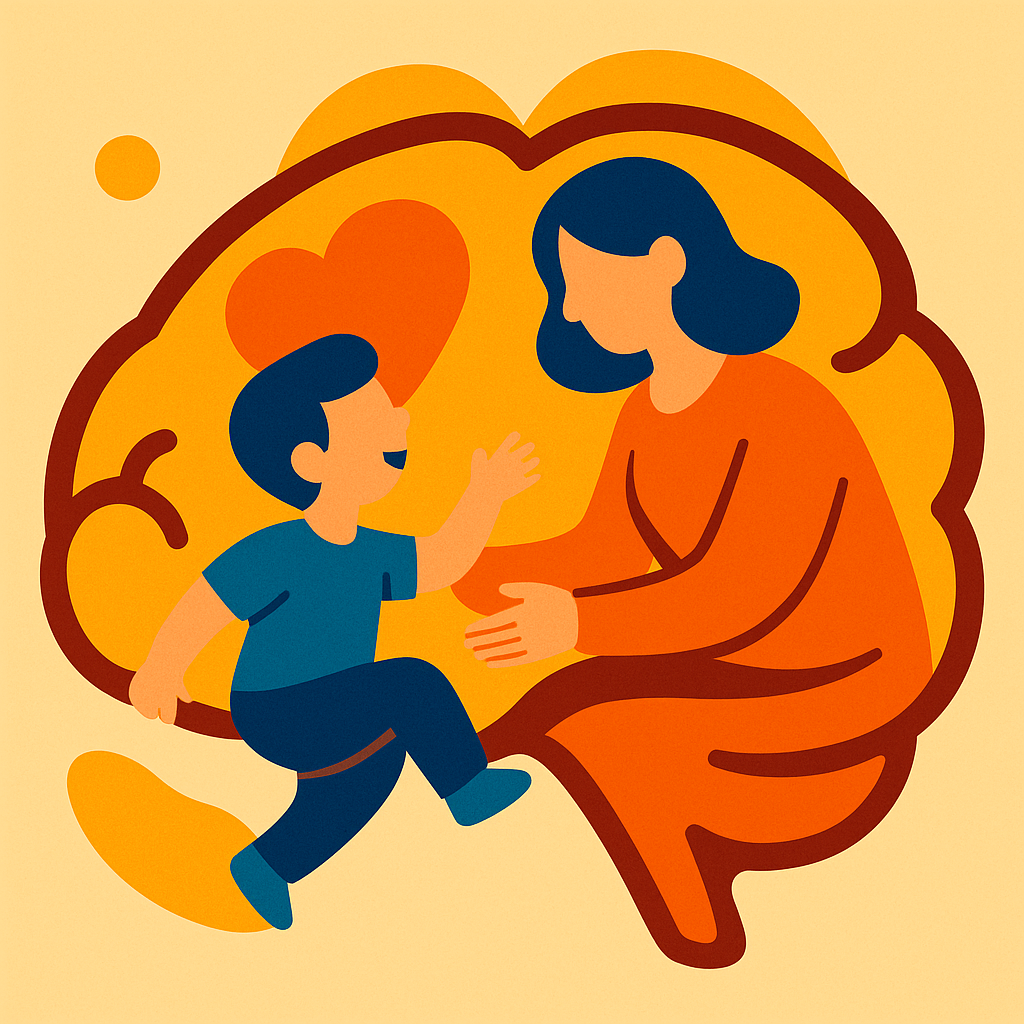If you’ve ever felt like parenting is a full‑body HIIT class for your mind, you’re not wrong. Between dodging flying sippy cups and answering endless “Why?” questions, parenthood can leave you feeling like your neurons are doing jumping jacks. But new research from Rutgers Health and Yale University suggests that juggling diapers and deadlines may actually keep your brain young.
اميني، لو في يوم حسيت إنك مستقيم مع الأولاد وقديمك موازنه لكن مخك بيجري ماراثون، فأنت مش بوحدك. دراسة جديدة من جامعتيّ راتجرز وييل بتقول إن التعامل مع الأولاد ممكن يخلي مخك أصغر، وينشطه أكثر.
A brain wired for parenting. Scientists analyzed brain scans and family data from almost 37,000 adults in the UK Biobank. They discovered that parents—mums, dads, adoptive or biological—showed neural connectivity patterns that counteract age‑related decline. In other words, the networks in our brains that normally weaken over time actually strengthen when we’re busy raising children. The more children someone had, the stronger this effect appeared.
مخاطرة على نسيج المخّ. حلّلوا صور المخ ومعلومات من نحو 37 ألف شخص. لقوا إن الأهل، مهما كانوا أمهات أو آباء، يعرضوا أنماط اتصال عصبية مختلفة تعكس النقص الطبيعي مع السن. وكلما زاد عدد الأولاد، زادت شدة هذا التأثير.
Why diaper duty doubles as a brain booster:
Movement matters: Parents are constantly on the move—rocking babies, chasing toddlers, hauling backpacks. This built‑in physical activity may help preserve brain networks involved in movement and coordination that normally decline with age.
Stronger social ties: Parenthood expands our social circles—playdates, school events, WhatsApp groups. Researchers found that parents tend to have larger social networks and more frequent connections, which support cognitive health and lower dementia risk.
A daily mental workout: From negotiating bedtime battles to balancing chores and homework, parenting demands constant problem‑solving, multitasking and emotional regulation. That constant cognitive stimulation may help keep neural pathways strong.
بختصار، رعاية الأولاد هي صالة رياضة للمخ. نحن نحرّك أجسامنا، ونكسر على الصداقات، ونحل مشاكل أكثر من الفيزاء. هذه النشاطات تنشط شبكات المخ وتحميها، بدلاً من تعب كبير.
**It’s not just moms — dads and caregivers get the benefits too.** The study noted that fathers showed similar brain‑boosting patterns, meaning it’s the caregiving itself—not pregnancy—that makes the difference. Even mentoring, fostering or pet parenting may offer similar enrichment. So whether you’re raising one child or a brood, or you’re the favourite uncle who babysits on weekends, your brain reaps rewards.
الفوائد مش قاصرة على الأمهات. الآباء والأعمام وحتى من يربون الحيوانات ويقومون بالرعاية يستفيدون، لأن القصد هو العطاء والترابط وليس الحمل.
What this means for you: The next time you find yourself explaining long division while making dinner and negotiating toy‑sharing treaties, remember that you’re not just keeping your children alive — you’re building your own neural gym. Celebrate those moments, build supportive routines and invite others into your parenting village. Your brain (and your kids) will thank you.
في مرة ثانية تلقي نفسك تعمل حسابات وتحضر العشا وتفاوض على من هيكسب اللعبة، افتكر إنك مش بس ترعى أولادك ، انت تبني قاعة غيرية في مخك. خذ كل لحظة معهم فرصة للنمو وشارك عائلتك وأصدقاءك في رحلة التربية. عقلك وأولادك حيشكروك.
—
Sources:
– Motherly, “More kids, sharper mind? Study says parenting may keep your brain young,” summarizing research that parents show neural connectivity patterns opposing age‑related decline and that more children strengthen these effects.
– Proceedings of the National Academy of Sciences (PNAS), study on the protective role of parenthood on age‑related brain function, which found that physical activity, social interaction and cognitive stimulation inherent in parenting bolster brain networks and that fathers experience similar benefits.







Leave a Reply
You must be logged in to post a comment.